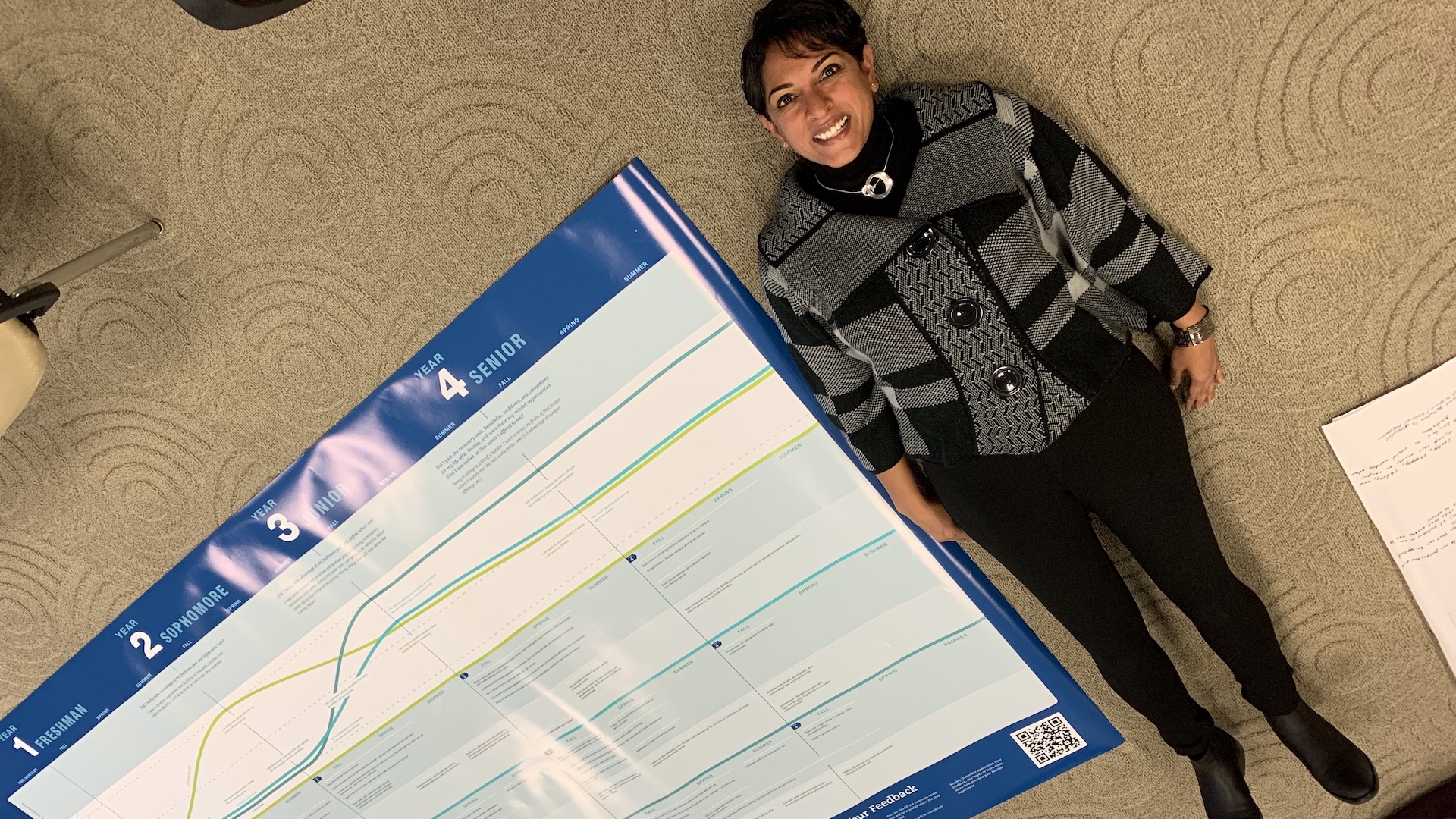
Friday 15 May 2020
Fluxible speaker spotlight: Why Meena Kothandaraman champions qualitative research
Although Fluxible 2020 has been cancelled, Fluxible TV is on the air. Meena Kothandaraman is one of the speakers on the program and we had the chance to talk to her ahead of her on-air appearance June 4 about the value of qualitative research and the cost of not doing it.
Good positioning. Good practice. Good process.
As a UX strategist with more than 20 years of experience, Meena Kothandaraman constantly has to uphold these three parts of good qualitative research across her projects.
When Meena spoke at Fluxible in 2019, she explored the mechanics of good qualitative research. She shared ways to expand our research methods to allow participants to truly express themselves.
However, Meena is also interested in the mindset of good qualitative research. Unfortunately, time and time again, she has found that some organizations simply aren’t interested in investing the time or effort it takes to get to know their users through qualitative research.
“People really try to cut corners with qualitative research. They really think it’s just quick and dirty … they think if you can ask questions, then you should be able do qualitative research. Similar to designers: if you can draw, you can do design. Not necessarily true. It takes a lot of details, a lot of processes. You have to understand how to collaborate with other people. It’s the same thing about research,” she says.
Fostering an interest in qualitative research is important. If the information of your qualitative research is going to be the foundation of your processes, that research needs to be good. When your confidence in your qualitative research forms the basis of how you choose to move forward in your product design, “you better damn well have that high confidence,” Meena says.
Qualitative research can bring more confidence to every level of the organization, from the designers who create a product to the customers who use it. The confidence we have in our methodologies is either high or low, “it’s binary,” according to Meena. There is no medium level. If an organization looks at their qualitative research and thinks it’s “meh” or isn’t sure what to make of it, that confidence is low. If an organization looks at their qualitative research and feels certain that the way their data was collected is sound, and they feel sure that they know their user, that confidence is high.
“When you do go out to do qualitative research, you understand that brings in a level of confidence that’s unprecedented.... It’s really understanding how you set up the entire infrastructure in order to be able to move forward with high confidence,” explains Meena.
Some organizations will nonetheless fail to see the benefits of qualitative research. Maybe they think it’s too expensive or time consuming. Maybe a poor experience in the past has led them to believe it’s useless. In these cases, such skeptical organizations may be best persuaded into qualitative research once they understand the costs of not doing it.
“Some of those costs are not only costs to the product, they’re costs to the people and they’re costs to the environment beyond the organization,” explains Meena.
Meena has a diverse and extensive background. She has researched for organizations across industries and spent almost 20 years as a lecturer at Bentley University’s Human Factors and Information Design (HFID) graduate program. Regardless of the work she describes, Meena makes the same point again and again: “There needs to be more rigour and a little bit more systematic approach to how you do qualitative research while still allowing enough creativity to conduct research.”
In an industry that’s constantly changing year after year, having a strong sense of structure can help guide processes from start to finish. Working alongside stakeholders with different mindsets towards qualitative research makes building that structure all the more complex. You have to adapt, share, and most importantly, learn — something that Meena loves to do.
Meena’s love of learning is what brings her to conferences like Fluxible. It’s why she made such a good fit for our conference in 2019. Celebrating diverse mindsets and learning from others is a huge part of Fluxible. While other speakers have praised the conference for the connections or the curiosity it inspires, Meena pointed out something entirely different: kindness.
“I think the part that stood out to me most was just the kindness, the kindness of the conference. It was small enough that you could meet everybody and it was big enough to have really great discussions. So it was wonderful to keep that as the point of view to be able to speak to people. But most importantly, it was just lovely to really be able to connect with the kindness of everybody … they have very purposefully branded this conference to be something meaningful,” she says.
Considering how caring and giving Meena has been throughout her life, we could not be more pleased with her praise! Though she likes to incorporate the curiosity of a researcher into almost everything she does, Meena does take time away from researching to give back. For instance, she has participated in after-school programs to teach young elementary school students how to cook, and has drawn on her expertise as a vocalist and South Indian classical violinist to teach music to members of her community.
Fluxible TV goes on the air June 4. Registration is now open.